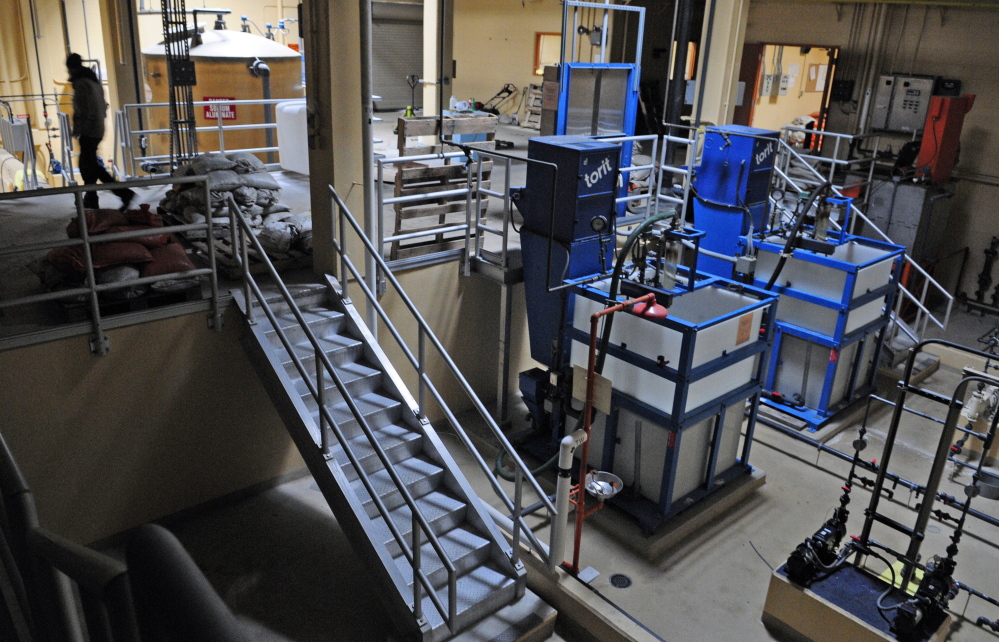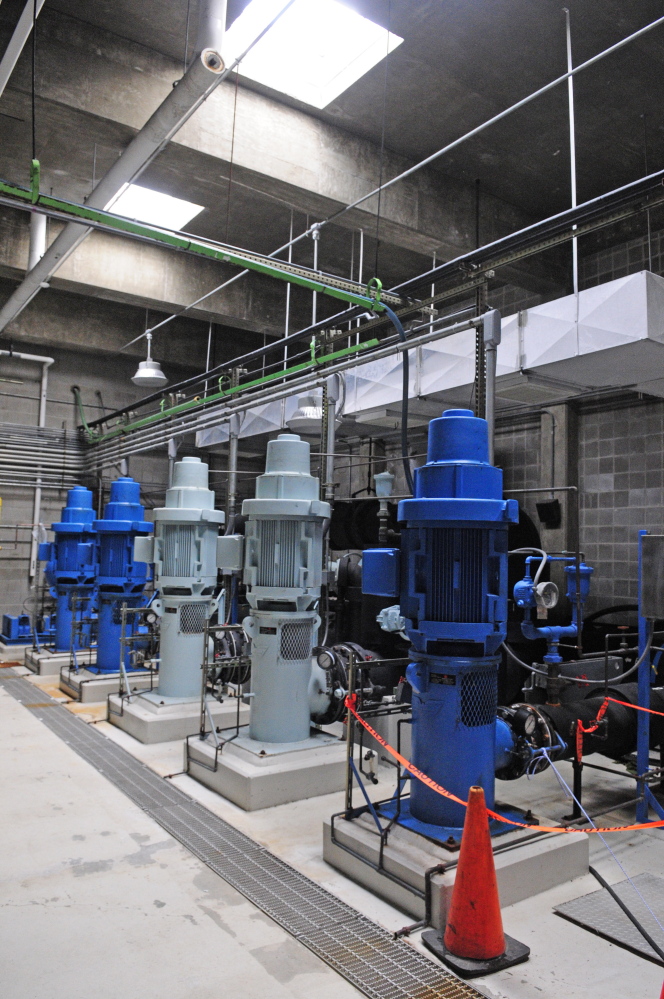The water treatment plant the Greater Augusta Utility District built in 1992 but shut down in 2004 because of decreased demand and cheaper drinking water alternatives could be converted into a training center for water- and wastewater-treatment workers.
It would be the only training center of its kind in the country, officials said.
The district’s proposal to lease the property to the Maine Rural Water Association could provide revenue to the utility district and lessen the burden on ratepayers while making use of an otherwise unused treatment plant. It would be a place to train and certify new workers in water and sewer treatment, industries with aging workforces and a lack of qualified workers to replace those who retire.
Without a use for the mothballed plant in east Winthrop, district officials said, it would have to be demolished to avoid the cost of long-term maintenance.
It was built to treat water pumped from nearby Carlton Pond into the Greater Augusta Utility District’s public drinking water system. Soon it won’t even be the district’s primary backup water source.
“It’s challenging for the trustees (of the Greater Augusta Utility District) to think about demolishing a $12 million building. We don’t want to do that,” said Ken Knight, chairman of the district’s board of trustees. “Because it’s not being used, you can’t just keep maintaining it for nothing. This proposal seemed like a wonderful opportunity to not demolish the plant.”
The proposal is in the early stages and lacks a major piece – money to pay for renovating the plant and creating and staffing the new instructional programs.
Kirsten Hebert, executive director of the Maine Rural Water Association, a Richmond-based nonprofit that assists Maine’s many rural water and wastewater system operators through training, advocacy, advice and technical support, said the association hopes to secure a planning grant to put a proposal together.
She said if the plan moves forward, money to fund the renovation, provide equipment and classroom materials and hire instructors could potentially come from private donations, industry sponsors, grants and a loan taken out by the association.
“We’re hopeful to find a grant, because, really, the Greater Augusta Utility District shouldn’t have any financial responsibility for this, and our association is not in a position to borrow $1 million to rehabilitate this space,” Hebert said.
Hebert said the training center could open next year.
A DRAW BEYOND MAINE
Hebert said regional and national water industry officials have expressed interest in the project, which she and Knight said could draw students from New England and beyond.
“Being able to sit in class, then get up from your chair, walk out back and do hands-on training on what you were just talking about in class, that type of training is truly unique,” said Hebert, an Augusta resident who is also a trustee of the Greater Augusta Utility District. “I’ve been unable to find any other academy or school of this ilk.”
Officials noted there is an anticipated need for operators, engineers and other workers in the industry. According to a 2014 survey published in the trade publication Water & Wastes Digest, the average age of survey respondents was 56, more than one-third were 60 or older, and more than one-third had been in the industry 30 years or more.
“At the wastewater plant, we’ve got a bunch of folks in their mid-50s,” said Brian Tarbuck, superintendent of the utility district. “People tend to stay a long time, and we’re lucky for that, but eventually they go, and over the years, we’ve had a hard time finding people that knew anything about water or wastewater. It may be a way to educate water operators for the next decades.”
Hebert said state and federal Department of Labor officials have expressed interest in the training center as a place where displaced workers from other occupations could come for training as part of an apprenticeship program.
Knight and Hebert have met with officials from the University of Maine at Augusta and Kennebec Valley Community College about partnering on training programs and having some of their students take classes and get credits at the center, which Knight said could be called the Maine Environmental Training Center.
Representatives from those colleges and others – including economic development officials and representatives from U.S. Sen. Angus King’s office and from Maine’s legislative delegation – participated in a meeting last December and plan to get together again Tuesday.
SAFEGUARDS PLANNED
The Maine Rural Water Association already offers training in the industry to more than 1,000 people a year. It also provides testing that can lead to industry certifications.
The plant would need new equipment in addition to the idle water treatment equipment it already has.
Tarbuck said area residents need not be concerned that a trainee at the proposed training center could inadvertently send untreated water into the public supply or cause a failure at the Carlton Pond dam.
“We wouldn’t allow that chance. We’d provide safeguards to make sure there was no possible way for (untreated water) to get into the system,” he said, adding that the dam at Carlton Pond, unlike larger dams, is not under a lot of pressure nor likely to cause flooding if its gates are mistakenly opened.
Knight said the district trustees agreed to authorize lease negotiations with the Maine Rural Water Association. Those talks are still in preliminary stages, Knight and Hebert said, and no dollar amount has been agreed to.
“It is young, in concept,” Hebert said. “But I truly think the one-of-a-kind opportunity here can be a boon to this state.”
Tarbuck said the property doesn’t cost a lot to maintain – it’s mostly the cost of electricity and keeping the lawn mowed – but the roof is starting to leak.
The plant was the district’s primary drinking water source until 2004, when the district switched to three wells near Bond Brook in Augusta.
Tarbuck said when the former Kirschner hot dog plant in Augusta, a major water user, closed in 2004, demand for water in the district decreased. The district determined its needs could be met by the three wells for about $400,000 a year less than it cost to use the treatment plant. So the district decided to mothball the plant and only use it in emergencies.
However, with the addition of new wells on the west side of Augusta last year, which are expected to come online this summer, the idled plant may no longer even be needed, Knight said.
Copy the Story LinkSend questions/comments to the editors.






Success. Please wait for the page to reload. If the page does not reload within 5 seconds, please refresh the page.
Enter your email and password to access comments.
Hi, to comment on stories you must . This profile is in addition to your subscription and website login.
Already have a commenting profile? .
Invalid username/password.
Please check your email to confirm and complete your registration.
Only subscribers are eligible to post comments. Please subscribe or login first for digital access. Here’s why.
Use the form below to reset your password. When you've submitted your account email, we will send an email with a reset code.